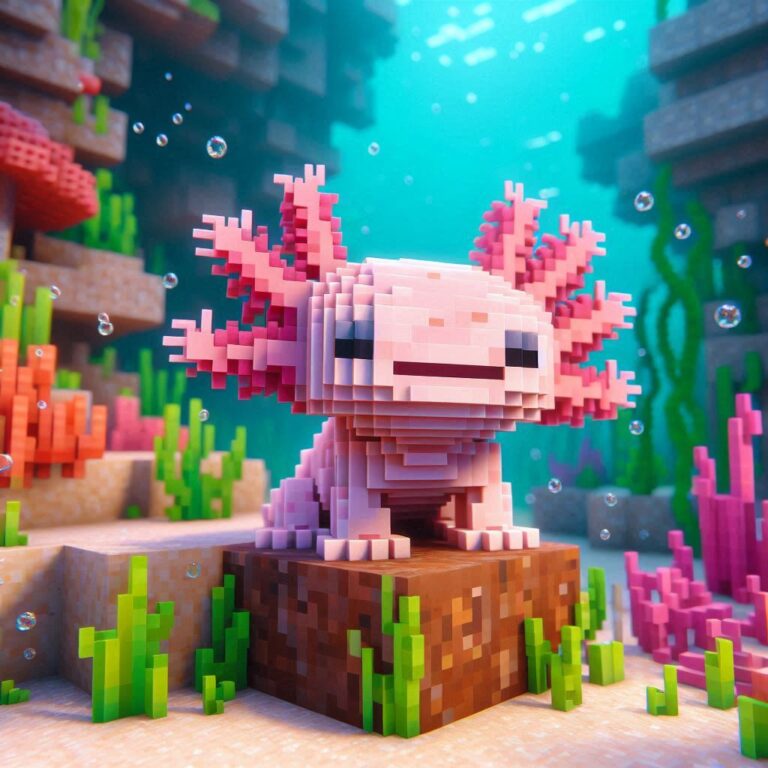
Axolotls, native to the freshwater lakes of Mexico, have captivated enthusiasts worldwide with their unique appearance and fascinating behaviors. While they thrive in the warm waters of their natural habitat, many wonder if they can adapt to the cooler climate of the United Kingdom. Despite their origins in a different climate zone, axolotls can indeed live in the UK, provided they are housed in controlled environments. This typically involves maintaining indoor tanks with regulated temperature settings to mimic their preferred conditions. With proper care and attention to their specific needs, axolotls can lead healthy lives as cherished pets in British households.
Environment Effect
Axolotls, often referred to as “Mexican walking fish,” hail from the ancient waterways of Mexico City, specifically from the remnants of Lake Xochimilco and Lake Chalco. Their natural habitat was once a maze of interconnected lakes and canals teeming with aquatic life. However, urbanization and pollution have taken a toll on these ecosystems, leading to a decline in wild axolotl populations. Despite their decline in the wild, axolotls have found a new home in aquariums and research laboratories worldwide, captivating enthusiasts with their regenerative abilities and neotenic features.
In the United Kingdom, where the climate differs significantly from that of central Mexico, axolotls require careful consideration of their environmental needs. While they are adaptable to a range of temperatures, they thrive in cooler waters, ideally between 14 to 20 degrees Celsius. This temperature range is essential for maintaining their metabolic rate and overall health. Therefore, axolotls in the UK are typically housed in indoor tanks equipped with cooling systems or placed in cooler rooms to simulate their preferred habitat conditions.
Climate Conditions
The United Kingdom’s climate, characterized by mild temperatures and frequent rainfall, poses both challenges and advantages for axolotl keepers. While the temperate climate provides a stable environment for indoor tank setups, fluctuations in room temperature can affect water conditions, potentially stressing the axolotls. Therefore, it’s crucial for owners to monitor and regulate tank temperatures consistently, especially during seasonal changes.
One advantage of the UK’s climate is the abundance of resources for axolotl keepers, including access to specialized equipment, aquatic plants, and a diverse community of fellow enthusiasts. Additionally, the moderate climate reduces the risk of extreme temperature fluctuations that could endanger axolotls’ health. However, owners should still be vigilant during heatwaves or cold snaps, as these weather events can impact indoor temperatures and require adjustments to maintain optimal conditions for their aquatic companions.
Habitat Requirements
Creating a suitable habitat for axolotls in the United Kingdom involves careful consideration of their unique needs. In addition to maintaining stable water temperatures, axolotl tanks should be spacious, well-oxygenated, and equipped with appropriate filtration systems to keep the water clean and healthy. Axolotls are sensitive to water quality, so regular water testing and partial water changes are essential for preventing ammonia and nitrite buildup.
Furthermore, providing adequate hiding spots, such as PVC pipes, ceramic caves, or live plants, is crucial for axolotls to feel secure and reduce stress. Unlike many other amphibians, axolotls are entirely aquatic and do not require land areas in their habitat. However, providing a gentle slope or platform near the water’s surface allows them to access air for breathing without straining themselves. Overall, creating a well-designed habitat that meets their physical and behavioral needs is key to ensuring the health and happiness of axolotls in the UK.
Legality
The legal status of axolotls in the United Kingdom reflects the broader regulatory framework governing exotic pets. While axolotls are not classified as dangerous or invasive species, their ownership is subject to certain restrictions and guidelines to ensure responsible pet keeping and conservation efforts. The legality of keeping axolotls varies from region to region within the UK, with some areas implementing stricter regulations than others. However, in general, axolotls are considered legal to own as long as they are acquired from reputable sources and kept in suitable conditions.
Regulations on Ownership
Regulations on axolotl ownership in the United Kingdom primarily focus on animal welfare and environmental conservation. Responsible ownership entails providing adequate care, housing, and nutrition for these unique amphibians while also preventing potential harm to native ecosystems. While there are no specific licensing requirements for owning axolotls, owners are expected to adhere to general animal welfare laws and guidelines set forth by organizations such as the Royal Society for the Prevention of Cruelty to Animals (RSPCA) and the British Veterinary Association (BVA).
Import and Export Laws
The import and export of axolotls in the United Kingdom are governed by both national and international regulations aimed at preventing the spread of diseases and protecting biodiversity. Importing axolotls into the UK typically requires compliance with customs procedures, health certifications, and quarantine protocols to ensure the animals’ welfare and prevent the introduction of invasive species. Similarly, exporting axolotls from the UK may involve obtaining permits and adhering to regulations set by the Convention on International Trade in Endangered Species of Wild Fauna and Flora (CITES) and other relevant authorities.
Furthermore, axolotls bred in captivity are often favored over wild-caught specimens due to their lower risk of introducing pathogens and parasites into native ecosystems. Therefore, many axolotls available in the UK pet trade are bred domestically or sourced from reputable breeders who adhere to ethical breeding practices and conservation efforts. By promoting responsible trade and ownership of axolotls, the UK contributes to global conservation initiatives aimed at preserving these fascinating amphibians for future generations.
Axolotls Price in the United Kingdom
The price of axolotls in the United Kingdom varies depending on factors such as age, coloration, and breed. As unique amphibians with a growing fan base, axolotls have become increasingly popular in the pet trade, leading to a wide range of prices to accommodate different budgets and preferences. While some enthusiasts may be willing to invest in rare color morphs or genetically modified specimens, others may opt for more affordable options that still offer the charm and appeal of these fascinating creatures.
Average Cost
On average, axolotls in the United Kingdom typically range in price from £20 to £50, although this can vary depending on the seller and the specific characteristics of the axolotl. Juvenile axolotls are often less expensive than adults, as they have yet to reach their full size and coloration. Additionally, common color morphs such as wild type and leucistic axolotls are generally more affordable than rarer morphs like melanoid or GFP (Green Fluorescent Protein) axolotls, which may command higher prices due to their unique appearance.
Factors Affecting Price
Several factors influence the price of axolotls in the United Kingdom, including rarity, age, size, and genetic traits. Axolotls with unusual coloration or patterns, such as albino or piebald morphs, tend to be more expensive due to their novelty and appeal to collectors. Similarly, axolotls bred from genetically diverse lineages or selectively bred for specific traits may command higher prices than standard specimens.
Age and size also play a role in determining the cost of axolotls, with larger and more mature individuals often priced higher than juveniles. This is because larger axolotls are closer to breeding age and may exhibit more vibrant colors or markings, making them desirable additions to breeding projects or display tanks.
Pros and Cons of Owning Axolotls in the United Kingdom

Owning axolotls in the United Kingdom offers a unique and rewarding experience for amphibian enthusiasts, but it also comes with its own set of challenges. Here are some pros and cons to consider before bringing these fascinating creatures into your home:
Pros
- Unique Pet Experience: Axolotls are unlike any other pet, with their otherworldly appearance and fascinating behaviors. Watching them swim gracefully through their aquatic habitat and observing their regenerative abilities can provide endless entertainment and wonder.
- Low Maintenance: Compared to traditional pets like dogs or cats, axolotls are relatively low-maintenance. They don’t require daily walks or grooming and can thrive in a well-maintained aquarium with regular feeding and water changes.
- Educational Opportunities: Owning axolotls can be an educational experience for both children and adults alike. Learning about their biology, habitat requirements, and unique adaptations can foster a deeper appreciation for the natural world and conservation efforts.
- Therapeutic Benefits: Many axolotl owners find comfort and relaxation in observing their aquatic companions. Watching the rhythmic movement of axolotls can have a calming effect and serve as a form of stress relief after a long day.
- Conversation Starter: Axolotls often spark curiosity and conversation among friends and visitors. Sharing interesting facts about these unusual creatures can lead to engaging discussions and help raise awareness about amphibian conservation.
Cons
- Specific Care Needs: While axolotls are relatively low-maintenance pets, they have specific care requirements that must be met to ensure their health and well-being. Maintaining water quality, providing appropriate tank conditions, and offering a balanced diet are essential tasks for axolotl owners.
- Limited Availability of Veterinary Care: Finding a veterinarian with experience in amphibian care can be challenging in some areas of the United Kingdom. Not all veterinary practices may have the expertise or resources to treat axolotls, which can make it difficult to access specialized medical care when needed.
- Risk of Overfeeding: Axolotls have voracious appetites and can easily overeat if not monitored closely. Overfeeding can lead to obesity and other health issues, so it’s essential to provide the right amount of food and maintain a balanced diet for your axolotls.
- Potential for Aggression: While axolotls are generally peaceful creatures, they may exhibit territorial behavior or aggression towards tank mates under certain conditions. Housing them with compatible species and providing plenty of hiding spots can help reduce the risk of conflict.
- Long Lifespan: Axolotls can live up to 10-15 years or more in captivity with proper care. While this longevity allows for a strong bond to form between owner and pet, it also requires a long-term commitment to their care and well-being.
FAQs
Q. Can axolotls survive in the United Kingdom’s climate?
A. Axolotls are best kept in controlled environments as they require relatively stable temperatures and clean water conditions. In the UK, they can thrive in indoor tanks with regulated temperature settings.
Q. Are axolotls legal to own in the United Kingdom?
A. Yes, axolotls are legal to own in the UK. However, it’s essential to check local regulations as some regions may have specific laws regarding exotic pets.
Q. How much do axolotls cost in the United Kingdom?
A. The price of axolotls in the UK can vary depending on factors such as age, coloration, and breed. On average, they can range from £20 to £50.
Q. What kind of habitat do axolotls need in the United Kingdom?
A. Axolotls require a tank with cool, clean water and plenty of hiding spots. A substrate-free tank is ideal to prevent them from ingesting gravel, which can cause health issues.
Q. Are axolotls easy to care for in the United Kingdom?
A. While axolotls are generally low-maintenance pets, they have specific care requirements. Regular water quality checks, appropriate tank setup, and a proper diet are essential for their well-being.
Q. Do axolotls need a permit to be kept in the United Kingdom?
A. Generally, axolotls do not require a permit for personal ownership in the UK. However, it’s crucial to stay informed about any changes in regulations.
Q. Can axolotls be housed with other fish or animals in the United Kingdom?
A. Axolotls are best kept alone or with their kind due to their unique feeding habits and potential for aggression towards other tank mates. Housing them with fish or other aquatic animals may result in injuries or stress.
Q. What do axolotls eat in the United Kingdom?
A. Axolotls primarily eat live or frozen food such as bloodworms, brine shrimp, and blackworms. It’s essential to provide a varied diet to ensure they receive adequate nutrition.
Q. How long do axolotls live in the United Kingdom?
A. With proper care, axolotls can live up to 10-15 years in captivity. However, their lifespan can vary depending on factors such as genetics, diet, and environment.
Q. Do axolotls require specialized veterinary care in the United Kingdom?
A. While axolotls are hardy creatures, finding a vet with experience in amphibian care is crucial for addressing any health issues that may arise. Not all veterinarians may be knowledgeable about axolotl care, so it’s essential to research and locate a suitable professional in advance.
Conclusion
In conclusion, owning axolotls in the United Kingdom offers a blend of unique joys and challenges for amphibian enthusiasts. These fascinating creatures bring a touch of the extraordinary into our homes with their mesmerizing appearance, captivating behaviors, and remarkable regenerative abilities. While their low-maintenance nature and educational value make them appealing pets for many, axolotl ownership also requires careful attention to their specific care needs, access to specialized veterinary care, and a long-term commitment to their well-being.

Hassan Shah carries over four years of hands-on expertise in caring for axolotls, guided by his cherished companion ‘Little Bruno,’ a thriving axolotl under his attentive care for three years.



